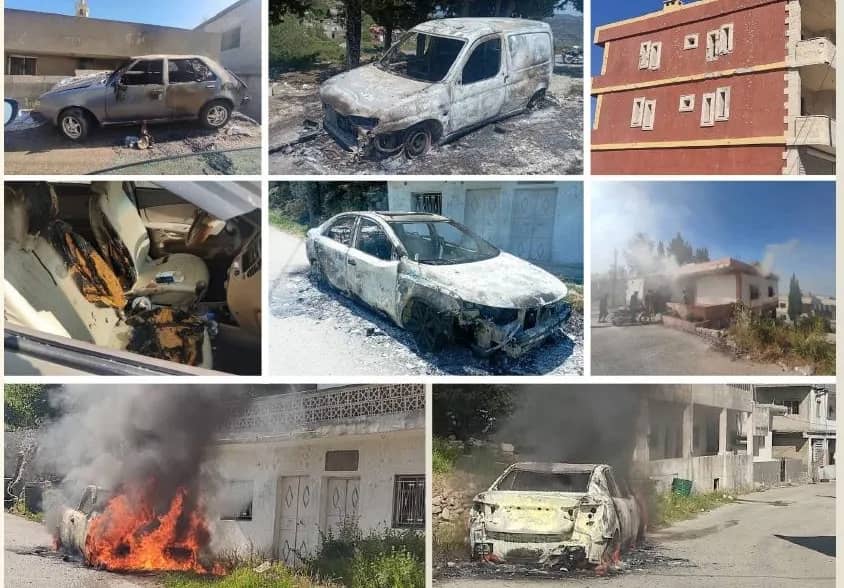The Syrian Network for Human Rights demands justice for the victims of violations in the countryside of Latakia and the regulation of security operations.

The "Syrian Network for Human Rights" urgently called for holding accountable those responsible for the violations accompanying the security campaign in the countryside of Latakia, which resulted in civilian casualties and property destruction following the armed attack on the Dalieh post office at the beginning of June.
The crisis erupted after the Dalieh post office in the countryside of Jableh was attacked by unknown armed individuals on Wednesday, June 4, prompting the internal security forces to launch a wide-ranging combing campaign that included the villages of Dalieh, Beit Ana, and surrounding villages under an immediate curfew.
The security campaign resulted in the killing of three civilians, including the young man Issam Hassan Sharouf from the village of Batmoush, who was shot by security forces while in a forested area near his village during the curfew. Two other civilians were killed the following day during combing operations without evidence of their involvement in violence.
In a related context, lawyer Radwan Al-Ahmad and his brother, the doctor Wisam Al-Ahmad, were detained in the town of Dalieh without official notification or disclosure of their place of detention, raising concerns about their arbitrary arrest.
The network also documented material violence targeting private property, as security forces set fire to six houses and five civilian cars, in addition to seizing six other vehicles owned by local residents, actions described by the network as a blatant violation of civilians' rights.
The network affirmed in its report that these events constitute a clear violation of international law, pointing out that random killings violate Article 6 of the International Covenant on Civil and Political Rights regarding the right to life, while detention without legal procedures violates Article 9 of the same covenant. Moreover, the destruction of private property contravenes Article 17 of the Universal Declaration of Human Rights guaranteeing the right to property.
The network called on the transitional government to conduct an independent and impartial investigation into all the violations accompanying the security campaign, revealing the fate of the abducted individuals and ensuring accountability for those involved. It also demanded the establishment of a code of conduct defining the rules of operation for security forces during field operations and ensuring their compliance with human rights standards.
It emphasized the importance of compensating the victims and their families fairly, providing them with psychological and social support, as well as enhancing civilian oversight mechanisms over the work of security agencies to ensure transparency and accountability.
The network concluded by stressing that "ensuring justice for the victims and reducing security violence is a fundamental step in restoring the community's trust in state institutions in this critical phase."